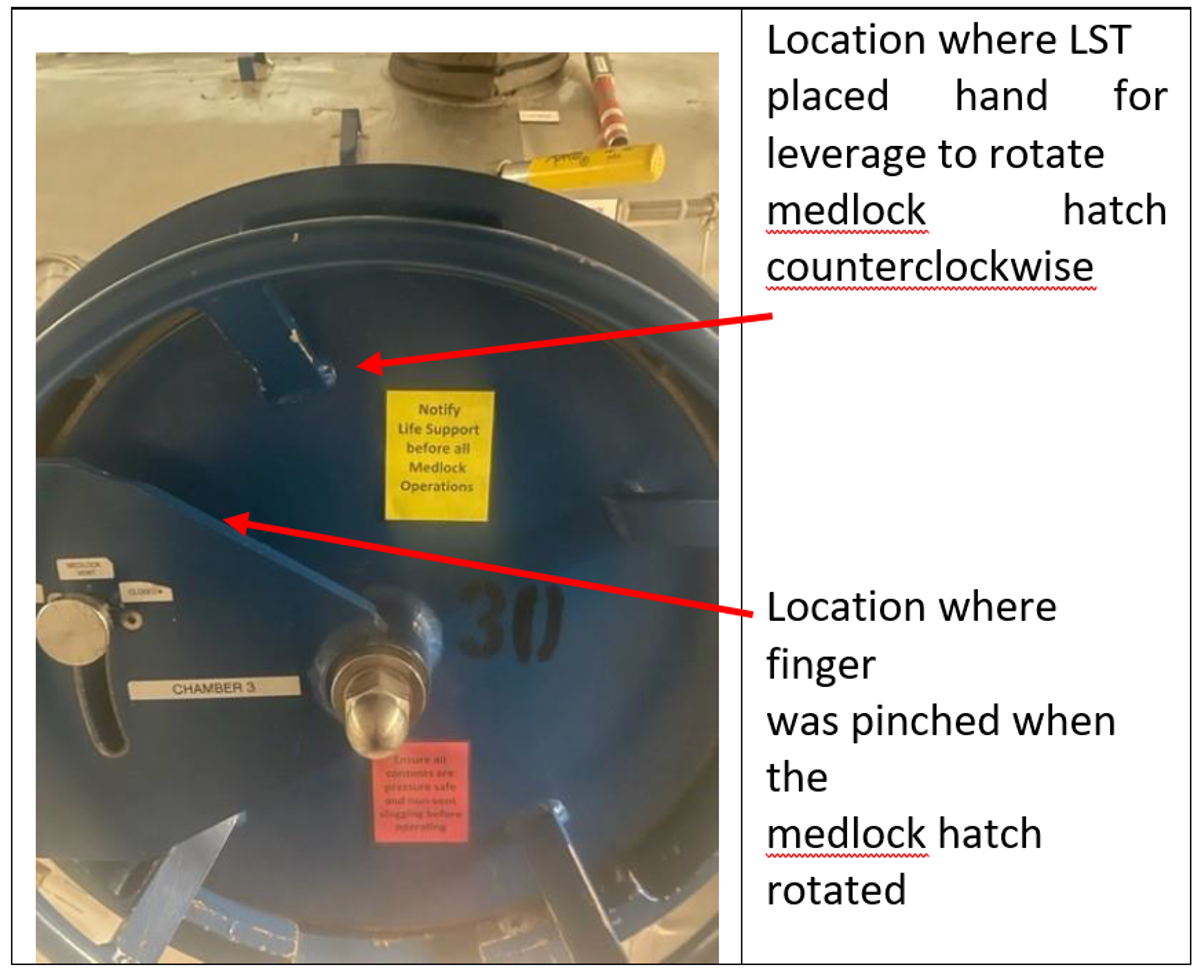Hand injury in medical airlock
- Safety Flash
- Published on 24 May 2023
- Generated on 12 July 2025
- IMCA SF 13/23
- 1 minute read
Jump to:
A Life Support Technician (LST) suffered a finger injury whilst operating the medical airlock (“Med-lock”) on a dive chamber.
What happened?
The LST was closing the Med-lock door but was unable to rotate the door to the fully closed position, indicating that the hatch needed to rotate further clockwise.
The LST attempted to rotate the hatch counterclockwise in order to be able to open the door and inspect it.
The Med-lock was stiff to rotate. For leverage to assist with rotating the Med-lock, the LST placed his hand on the flat bars that brace the operating wheel.
The hatch moved suddenly and because his hands were on the brace and not on the wheel itself, his hand got pinched between the brace and the Med-lock door hinge plate, causing an injury.

What went wrong?
The hatch was stiff, and the LST had his fingers in the wrong place at the wrong time.
Actions
- Maintain proper lubrication on the door. Added Med-lock maintenance to planned maintenance programme.
- Added warning signage to the Med-Lock, for appropriate hand placement, along with clear instructions.
- Updated the vessel familiarisation to include Med-lock operations and demonstrate operations.
Related safety flashes
-
IMCA SF 06/19
5 April 2019
-
-
IMCA SF 04/16
5 February 2016
IMCA Safety Flashes summarise key safety matters and incidents, allowing lessons to be more easily learnt for the benefit of the entire offshore industry.
The effectiveness of the IMCA Safety Flash system depends on the industry sharing information and so avoiding repeat incidents. Incidents are classified according to IOGP's Life Saving Rules.
All information is anonymised or sanitised, as appropriate, and warnings for graphic content included where possible.
IMCA makes every effort to ensure both the accuracy and reliability of the information shared, but is not be liable for any guidance and/or recommendation and/or statement herein contained.
The information contained in this document does not fulfil or replace any individual's or Member's legal, regulatory or other duties or obligations in respect of their operations. Individuals and Members remain solely responsible for the safe, lawful and proper conduct of their operations.
Share your safety incidents with IMCA online. Sign-up to receive Safety Flashes straight to your email.